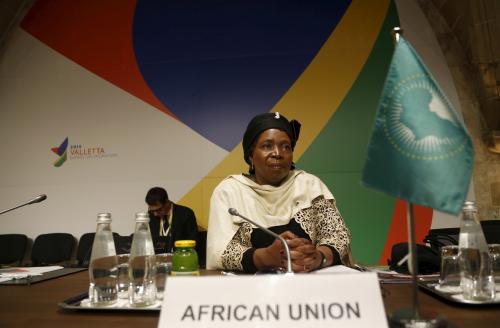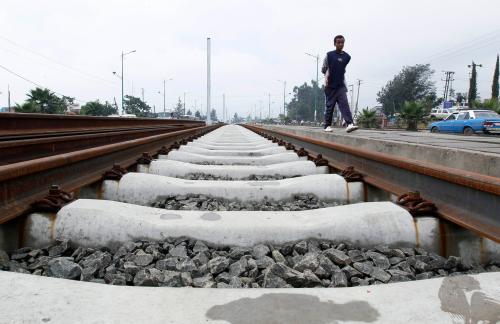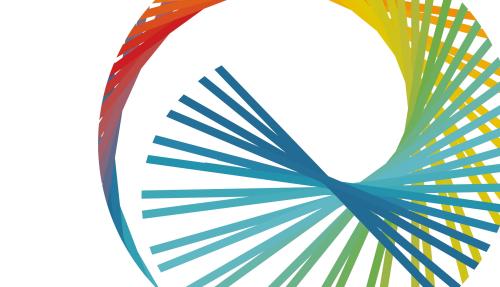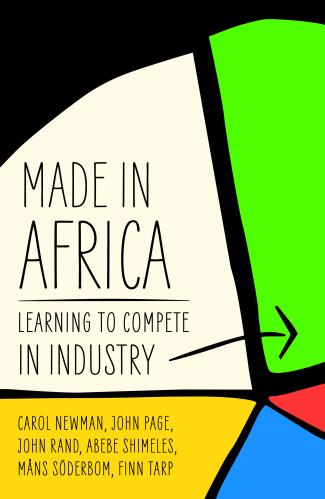During the 27th Heads of State Assembly of the African Union (AU) meeting in Kigali, Rwanda, from July 17-18, 2016, the heads of state were supposed to elect individuals to lead the AU for the next four years. One of the most important functions that the delegates were expected to perform was to elect the chairperson of the AU Commission to replace the present chairperson, South Africa’s Dr. Nkosazana Dlamini Zuma, who had indicated that she would not seek re-election.
Three candidates were standing for the position of chairperson of the AU Commission. These were Dr. Pelonomi Venson-Moitoi, foreign minister of Botswana, Dr. Specioza Waigaga Wandira Kazibwe, former vice president of Uganda, and Mr. Agapito Mba Mokuy, foreign minister of Equatorial Guinea. There was great expectation that the election of any one of these three candidates would significantly advance gender and regional balance, with respect to key leadership positions in continental institutions. Hence, the election of either one of the two female candidates would have been welcomed by supporters of gender balance. However, if the delegates had opted for Mr. Mokuy, such a choice would have been welcomed by the Spanish-speaking community, as well as the continent’s smaller and historically marginalized states. Given the fact that the outgoing chairperson of the AU Commission, Dr. Zuma, is a woman, the hope within the central African community was that Mr. Mokuy would emerge victorious and represent the region, as well as serve as a sign of hope for the heretofore marginalized regions.
No clear winner among the three candidates leads to stalemate
Reports from Kigali are that the election for the chairperson has been postponed until January 2017. It is reported that the AU took that decision based on the fact that none of the three candidates had secured the two-thirds majority of votes needed to win. During the election’s first round, Dr. Venson-Moitoi received 16 votes, Mr. Mokuy received 12 votes, and Dr. Kazibwe received 11 votes.
Those who abstained from voting claimed that the candidates were not qualified to lead the commission.
After receiving the least votes in the first round, Dr. Kazibwe withdrew from the competition. That left Dr. Venson-Moitoi and Mr. Mokuy to compete for the position. Although Dr. Venson-Moitoi garnered 23 votes in the next round, that number was less than the 36 votes to constitute the two-thirds majority needed to emerge victorious.
Part of the reason for this quagmire, as the news from Kigali is indicating, is that as many as 15 heads of state abstained from voting in the first round of the competition and that in the second round, 20 acted similarly. These many abstentions derailed the process and made certain that none of the remaining candidates would emerge victorious.
While these may be legitimate issues to raise, one wonders why these issues were not raised and fully resolved before the delegates actually assembled in Kigali.
Indeed, the AU assembly chair, President Idriss Déby of Chad, cited the boycott as a deciding factor in the failure of any of the three candidates to secure the necessary votes to win. He then announced that the elections had been postponed until January 2017 and that the heads of state had opened up the contest to more candidates—a decision that appears to be a slap in the face of the current candidates. Notably, this appears to support the Economic Community of West African States (ECOWAS) bloc’s pre-election petition that the elections be postponed because, as they argued, none of the candidates was qualified to lead. That petition, however, had been previously denied.
The argument for new candidates and postponement: Determining who is qualified
President Déby argued, in his post-election proclamation, that the delay would provide candidates and their respective regions with the time to adequately prepare for the elections in January 2017. What appears to be implied by this declaration is that preparations for the failed July elections were inadequate and that with this extra time, the type of behavior exhibited by some representatives during the recently concluded elections would not occur in January. However, unless the AU puts in place rules to prevent such an eventuality, there is no guarantee that January 2017’s elections would not be marred by such last-minute maneuvering again. What is to prevent other blocs from engaging in similar strategic behavior (i.e., boycotting the election) in order to promote their own candidates for the various leadership positions in the commission?
Nevertheless, the AU is a continental organization, and no country or region should be allowed to dominate and monopolize leadership positions in its institutions.
Those who abstained from voting claimed that the candidates were not qualified to lead the commission. Dr. Kazibwe’s candidacy was questioned on the grounds that she was previously convicted of abusing state funds. Mr. Mokuy was taken to task for his country’s human rights record, while Dr. Venson-Moitoi’s candidacy was questioned because her home country, Botswana, has often taken positions that are contrary to those of many other AU members, notably on the issue of Africa’s relations with the International Criminal Court.
While these may be legitimate issues to raise, one wonders why these issues were not raised and fully resolved before the delegates actually assembled in Kigali. Certainly, the AU must have mechanisms to vet individuals who are nominated for leadership positions in its institutions to determine their fit for office. During such a vetting process, groups and individuals within the AU can make known their objections to candidates that they believe are not qualified to perform the jobs for which they are being nominated. Of course, such a vetting process must be governed by rules chosen in an earlier period such as those presented in The Statutes of the Commission of the African Union, which provide information on the minimum qualifications and experience of the commissioners. Hence, any challenge to the qualifications of an individual running to serve on the commission should begin with and be governed by such rules.
How the African Union can stay unified
Once candidates have been fully vetted and determined to meet the minimum qualifications to stand for the positions for which they have been nominated, no head of state (i.e., elector) should boycott the voting. Of course, it is not surprising that electors would prefer to vote for candidates from either their own countries or region. Nevertheless, the AU is a continental organization, and no country or region should be allowed to dominate and monopolize leadership positions in its institutions. Hence, the AU Commission’s leadership must reflect the continent’s diversity, with specific emphasis on gender and geographic balance. Efforts by heads of state or blocs (e.g., ECOWAS) to engage in last minute strategic maneuvering (e.g., boycotting of elections) in order to secure certain political advantages should be discouraged. Such opportunistic behavior can seriously undermine the AU’s electoral system and place the organization in a very precarious position. In fact, one could argue that the outcome of the July 2016 commission elections in Kigali betray an organization that appears to be adrift and without proper leadership and one that is not willing to follow its own rules.
In fact, one could argue that the outcome of the July 2016 commission elections in Kigali betray an organization that appears to be adrift and without proper leadership and one that is not willing to follow its own rules.
As the AU looks forward, it must make certain that no voting bloc within the organization is allowed to grant itself the power to derail the electoral process. Such opportunism and capriciousness on the part of any group within the AU can prevent the deepening and institutionalization of democratic principles within the organization and effectively hold hostage the interests of the continent to those of a smaller group or region.
Thus, the process through which the member states of the African Union choose individuals to serve in and manage their institutions must be competitive and based on democratic principles. The AU should learn a lesson from what happened in Kigali and put legal mechanisms in place to deal fully and effectively with any future efforts by groups, individuals, and factions to engage in any behavior that can frustrate the functioning of the organization and its institutions. Perhaps the failure of the AU to anticipate such behavior is due to its inexperience. Nevertheless, the organization must provide itself with the wherewithal to prevent this type of stalemate. For, come January, another region may, at the last minute, register its dissatisfaction with all candidates and seek to replace them.
If the AU is to teach member states the principles of good governance, it must first put its own house in order and lead by example.
As the AU looks forward to the January 2017 round of elections, Senegalese politician and diplomat, Abdoulaye Bathily, has already indicated his interest in competing for the position of chairperson of the AU Commission. To avoid the problems that were encountered by the electoral process in Kigali, he, his country, and his region should commence the formal nomination process in order to provide all interested parties with the opportunity to properly vet his candidacy and determine his fit for office. In fact, other candidates who are planning to stand for the elections in January 2017 should also have themselves formally nominated as soon as possible so that the vetting process can be completed and a final list of qualified candidates agreed before the delegates meet in January 2017.
If the AU is to teach member states the principles of good governance, it must first put its own house in order and lead by example. It must, for example, make its electoral decisions through a democratic and competitive process. It must be governed by the rule of law in order for it to stand as a beacon of light for the many countries in the continent that are trying to deepen and institutionalize democracy. Unless the AU puts into place mechanisms to deal with the types of behaviors that derailed the commission elections in Kigali in July 2016, it risks descending into a quagmire from which it might not get out uninjured.









Commentary
Stalemate in Kigali: African Union fails to elect a chairperson
July 21, 2016